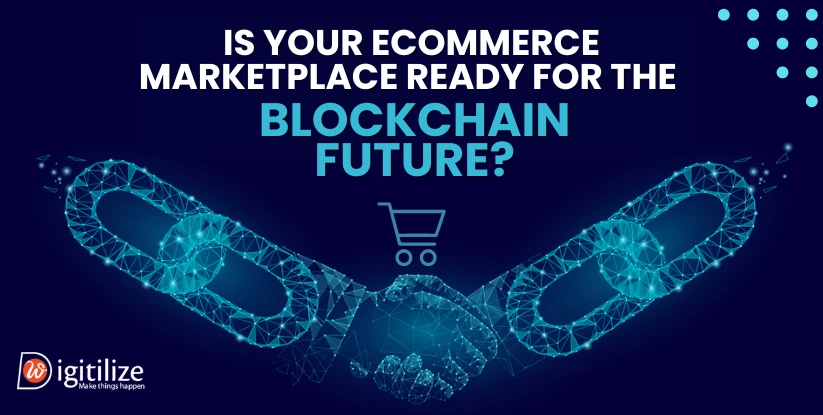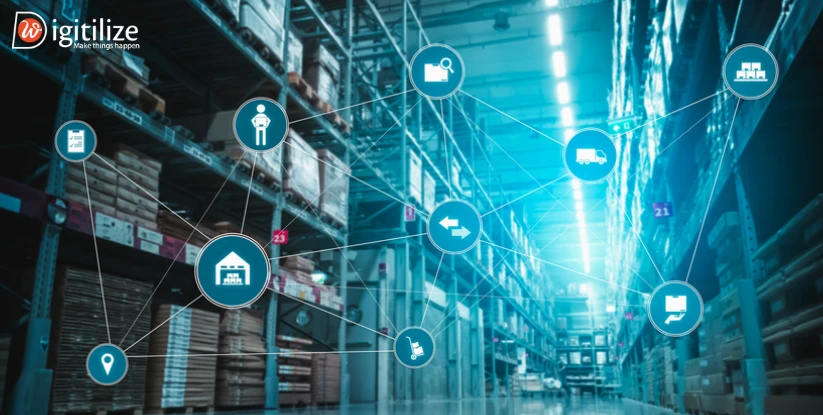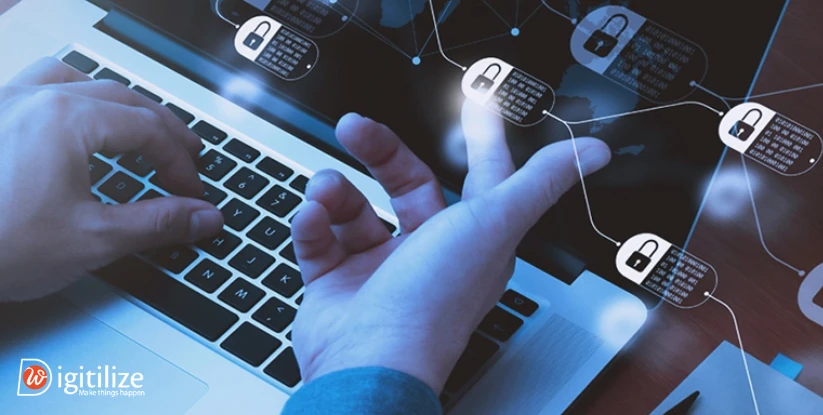Is Your Ecommerce Marketplace Ready for the Blockchain Future?

We’re already deep into 2025, and there’s one question every eCommerce business owner needs to ask, is your eCommerce marketplace ready for the future of eCommerce technology?
Blockchain technology is driving a major shift in the global economy. It has already transformed the finance industry and is now poised to disrupt eCommerce in a big way.
eCommerce stands out as one of the key industries that can benefit from blockchain. It brings more transparency, faster transactions, and better efficiency to business operations. As one of the fastest-growing and most profitable sectors, eCommerce is ready for this change.
The integration of blockchain will create a decentralized economy within eCommerce. This shift will completely change how people shop online.
Experts believe that decentralised commerce will soon become a reality. In a blockchain-powered eCommerce marketplace, users can carry out transactions without any central authority. This opens the door to a new, more secure, and transparent way of doing business.
Comprehending Blockchain Technology
Before we dive into how it helps ecommerce, let’s first understand what Blockchain is. Blockchain is a digital ledger. It’s not stored in one place but across many computers, making it decentralised and secure. Every participant in the network holds a full copy of the ledger.
Transactions are grouped into blocks. These blocks are linked together in the order they happen. This creates a chain that cannot be changed or tampered with. That’s why we call it Blockchain.
In blockchain for online marketplaces, each block makes sure data stays safe and unchanged. This keeps information accurate, no matter how many users are involved.
Blockchain uses strong cryptographic methods to protect data. Each time a transaction begins, it goes through a check by different computers in the network. Once verified, the transaction is locked into a block using a special cryptographic code. This block then connects to the previous one, forming a long and secure chain.
Since Blockchain is decentralised, no single person or company can control it. Changes can only happen if the majority of users agree. This process, called consensus, helps prevent fraud and keeps the system fair.
In 2025, Blockchain is becoming more important for ecommerce. It solves real problems like data leaks, payment fraud, and lack of trust. It also improves how supply chains are tracked and makes the whole payment process faster and safer.
With Blockchain, customers can trust what they buy and who they buy from. It builds confidence and creates a better online shopping experience.
Benefits of blockchain in Ecommerce Marketplace Development

-
Quicker Payments
Blockchain technology in ecommerce helps speed up transactions by removing middlemen like banks. You don’t have to wait for payment approvals or deal with delays. Blockchain allows real-time money transfers between buyers and sellers.
It also reduces transaction fees. Without banks or payment gateways, you avoid extra charges. This makes the entire process faster and cheaper.
Order fulfilment becomes quicker too. Once payment is confirmed on the blockchain, sellers can ship the product right away. It’s a smooth and efficient system that benefits everyone.
-
Being transparent
-
Verified Reviews
-
No Middlemen
In most online transactions, both buyers and sellers have to pay extra fees. These charges often go to third-party platforms or payment providers. It may seem odd, but sellers lose part of their earnings just to complete a sale.
Blockchain technology changes that.
It removes the need for middlemen. There are no banks, payment gateways, or platforms taking a cut. With blockchain for online marketplaces, transactions happen directly between buyers and sellers.
This means sellers can keep more of their profits. Buyers also avoid hidden fees. In short, Blockchain makes ecommerce more cost-effective for everyone involved.
-
Increase Sales
Thanks to blockchain technology in the ecommerce industry, you can now sell to customers in developing countries with ease. Many people in these regions don’t have access to credit cards or traditional banks. That used to be a big problem for online businesses.
Blockchain solves this.
It removes the need for banks or payment processors. Buyers can pay using digital currencies without needing a bank account. This opens your ecommerce platform to a much wider audience.
Retailers from these countries can also join your marketplace. They don’t have to follow strict banking rules. This makes it easier for them to sell their products online.
With Blockchain, you break global barriers. Anyone, anywhere, can buy or sell—no matter their location or financial system.
-
Improve Your Purchasing Experience
-
Data Security
One big problem in ecommerce is how platforms store massive amounts of data. Customers and sellers share a lot of personal and business information when they register. This data usually ends up on a centralised server.
But here’s the risk, centralised servers are easy targets for hackers. Once they break in, they can steal or destroy huge volumes of sensitive data. Many ecommerce companies have already faced such attacks. The result? Serious data loss and loss of customer trust.
Blockchain technology in ecommerce offers a better solution. It stores data across a decentralised network. No single server holds all the information. This makes it nearly impossible for hackers to break in and cause damage.
-
Simple drop shipment
When producers use a decentralised platform to dropship, they get more ways to increase sales. Customers can explore a wide range of products from around the world. At the same time, sellers have more freedom and better earning potential.
Instead of building their own brand, manufacturers can partner with merchants to promote their products. This model already works on traditional platforms like Amazon and eBay. But blockchain for online transactions opens up even more opportunities.
With Blockchain, producers can list products for free. They only earn when someone makes a purchase. Sellers, on the other hand, earn a commission for every sale. They can choose what to sell and how to market it
Current Ecommerce Challenges and Blockchain Solutions

-
Privacy and Data Security Issues
Ecommerce businesses face constant threats to customer data. Cyberattacks and data breaches can cause huge financial losses. Even worse, they damage customer trust.
Blockchain in online shopping helps prevent this. It uses strong cryptographic protocols to protect transaction data and customer details.
Unlike traditional systems, Blockchain does not store everything in one place. It spreads the data across a secure, decentralised network. This setup makes it harder for hackers to break in.
As a result, customer privacy stays protected. Blockchain also reduces the risk of large-scale data breaches. It gives both businesses and buyers peace of mind.
-
Insufficient Transparency in the Supply Chain
-
Payment Processing Inefficiencies
-
Products That Are Not Real

